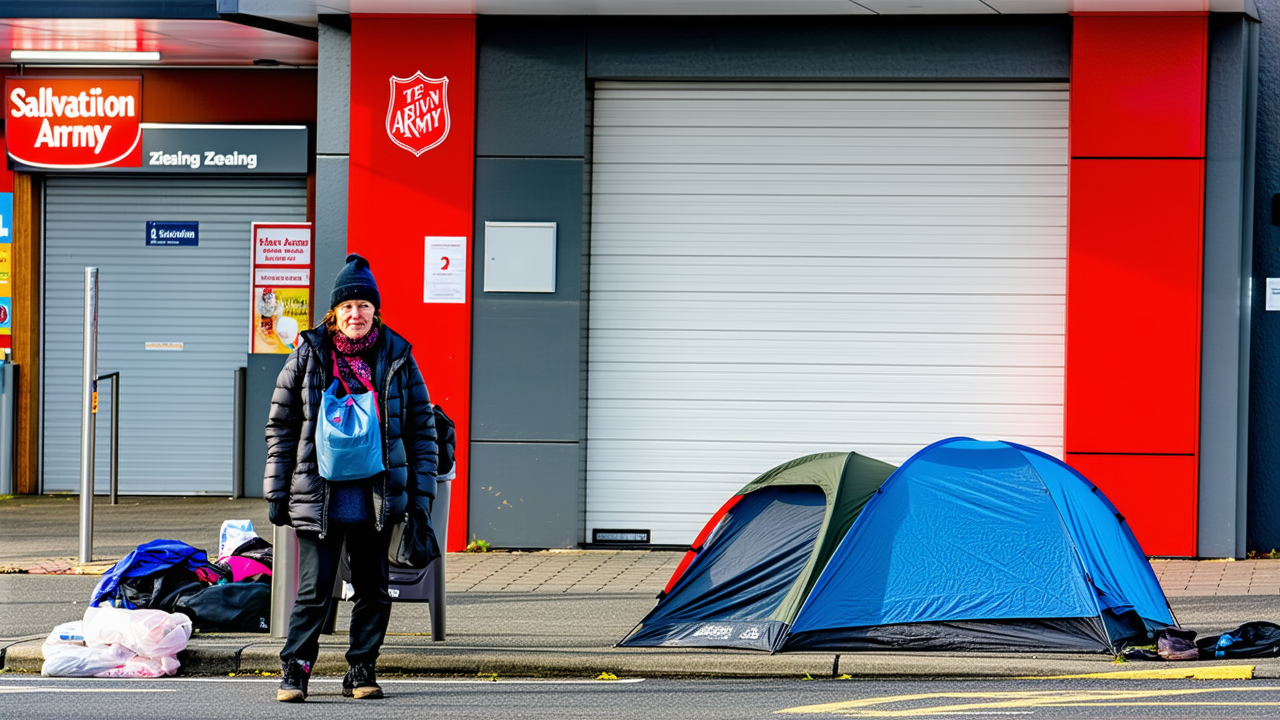Sharp Rise in Homelessness Sparks Salvation Army's Call for Urgent Action
Sharp Rise in Homelessness Sparks Salvation Army's Call for Urgent Action
Homelessness in New Zealand is on a troubling upward trajectory, with one in every 1000 Kiwis currently without shelter, according to the latest national data. This alarming trend has prompted The Salvation Army to issue a strong call for a coordinated and immediate response to address the growing scale and severity of the crisis.
The Salvation Army’s findings, drawn from the National Homelessness Data Project, reveal a worrying picture: a sharp increase in homelessness across nearly all communities, with no area reporting a decline. The data project is a collaborative initiative involving a range of housing and homelessness organisations, including The Salvation Army, Community Housing Aotearoa, Housing First Auckland Backbone, and others.
According to Lieutenant Colonel Ian Hutson, mission officer for The Salvation Army’s social policy and parliamentary unit, the nation is facing an “unparalleled disruption” due to the housing deficit. He emphasized the urgent need for affordable housing for all, stating that the current situation is disproportionately affecting the most vulnerable members of society, including single adults, older women over 55, and those living in cars or on the streets.
The survey data highlights several concerning trends, including a 386% increase in rejections by the Ministry of Social Development (MSD) citing that individuals “contributed to their own homelessness.” Respondents from support services reported that these rejections are creating barriers, leaving many confused, delayed, or unable to access the help they need without advocacy.
Other findings from the survey include a sharp increase in reported crimes against homeless individuals, rising by 81%, and the fact that housing is now the second most pressing concern for young adults aged 18–34. Overstretched support services are making it increasingly difficult for people to secure and maintain stable tenancies.
Hutson stressed that the government must act immediately to address the crisis, both in the short term and through long-term planning. He called for strengthened access to emergency housing, as well as investment in proven support services that can help individuals regain stability.
Additional data from OIA requests and other sources reinforces these findings, showing that 57,000 women are experiencing homelessness, often in unsafe or unstable living conditions. Furthermore, 14 in every 1000 people live in housing considered uninhabitable, and the situation is worsening for many.
As the Salvation Army calls for a unified approach to this growing crisis, the need for immediate government intervention and long-term systemic change has never been more urgent. Without swift action, the number of people facing homelessness in New Zealand is expected to continue rising, with devastating consequences for individuals, families, and communities.
